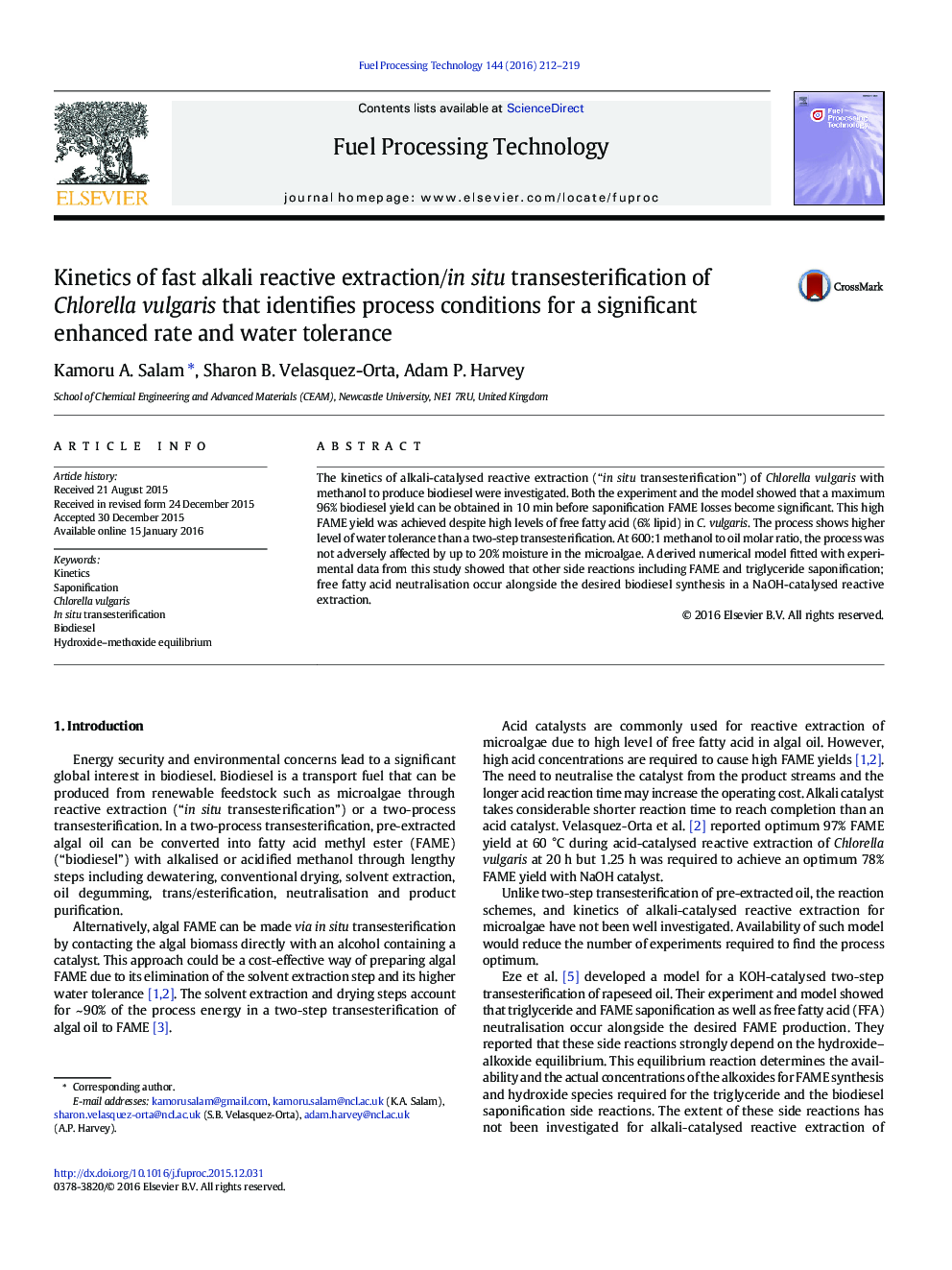| Article ID | Journal | Published Year | Pages | File Type |
|---|---|---|---|---|
| 209276 | Fuel Processing Technology | 2016 | 8 Pages |
•Kinetics of “fast” alkali-catalysed in situ transesterification was studied.•Obtained 96% biodiesel yield in 10 min•The process was not adversely affected by moisture in the algae up to 20%.•Determined side reactions not captured by previous in situ transesterification model•Determined conditions not affected by 6% FFA content in the algal lipids
The kinetics of alkali-catalysed reactive extraction (“in situ transesterification”) of Chlorella vulgaris with methanol to produce biodiesel were investigated. Both the experiment and the model showed that a maximum 96% biodiesel yield can be obtained in 10 min before saponification FAME losses become significant. This high FAME yield was achieved despite high levels of free fatty acid (6% lipid) in C. vulgaris. The process shows higher level of water tolerance than a two-step transesterification. At 600:1 methanol to oil molar ratio, the process was not adversely affected by up to 20% moisture in the microalgae. A derived numerical model fitted with experimental data from this study showed that other side reactions including FAME and triglyceride saponification; free fatty acid neutralisation occur alongside the desired biodiesel synthesis in a NaOH-catalysed reactive extraction.
